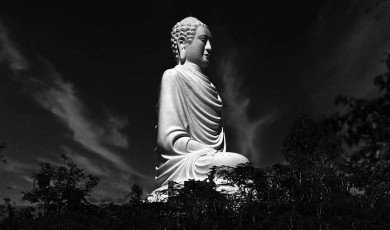
When you hear the term "modern philosopher," who comes to mind? Perhaps Albert Camus, grappling with the absurdity of existence in the 20th century, or Slavoj Žižek, dissecting ideology in our present dayThese thinkers, with their innovative responses to the crises and questions of their times, have become icons of philosophical modernity—each charting a path from good to great achievements in intellectual thought and personal vision. But what truly makes a philosopher 'modern'? Is it a question of chronology, method, subject matter—or is it something deeper?
For many, the story of modern philosophy is written in the bold strokes of Descartes’ rationalism or Kant’s critical method, with a few revolutionary outliers in the centuries that follow. Yet, too often, the narrative overlooks the foundational role played by early modern women philosophers—figures like Margaret Cavendish, Anne Conway, and Mary Astell—whose innovative ideas shaped and challenged the directions philosophy would take. As we explore what it means to be a modern philosopher, it's time to widen our lens.
Modernity: A Fluid Concept in Philosophy
The concept of 'modernity' in philosophy resists easy definition. In the most straightforward sense, it tends to refer to the era beginning with the Renaissance and, more formally, with the 17th century’s emergence of new intellectual paradigms. The “early modern period” is the site of seismic shifts: the rise of scientific reasoning, individualism, skepticism, and political theory that would shape the world to come. Modernity, like language itself, evolves across contexts and cultures—much as we see in the rich history of the Portuguese language, where centuries of transformation reflect the same interplay of innovation and tradition that defines philosophical progress.
Yet, modernity is far more than an era. It signals a set of sensibilities. It is the willingness to question received wisdom, to experiment with new forms of thinking, and to confront the lived realities of existence. Camus’ existential angst and Žižek’s psychoanalytic Marxism are contemporary manifestations of these sensibilities. But the roots run deep—deeper than we often acknowledge.
Caught between tradition and innovation, many early modern philosophers—particularly women—embodied the spirit of modernity even as they struggled for intellectual recognition. Their works, both against and within the philosophical mainstream, ask us to reconsider who gets counted as a 'modern' voice.
From Camus and Žižek Back to the Early Modern Women
In the search for what makes a philosopher truly modern, what do we find in Camus and Žižek? Camus rebels against metaphysical certainties, responding to a world stripped of inherent meaning with a call to personal responsibility and courage. Žižek, forever unsettling, forces us to confront the hidden structures behind our beliefs and desires, using the tools of psychoanalysis, critical theory, and irony.
These thinkers exemplify some of modern philosophy’s most characteristic moves: skepticism, engagement with ethical and political problems, and a willingness to shake the conceptual status quo. But let us rewind time, hundreds of years, and look at the early modern period—the so-called “birthplace” of our philosophical present.
Margaret Cavendish: A Radical Visionary
Margaret Cavendish, Duchess of Newcastle (1623–1673), was one of the most prolific and unconventional thinkers of the 17th century. At a time when natural philosophy (what we now call science) was dominated by men, Cavendish envisioned a universe of infinite worlds and challenged the mechanistic assumptions of Descartes, Hobbes, and Boyle. Her works, including The Blazing World and Observations upon Experimental Philosophy, defied genre and expectation, blending science, fiction, and philosophical speculation—anticipating the playful narrative experimentation later seen in works like Tristram Shandy.
What makes Cavendish irrefutably modern is not just her forward-thinking cosmology, but her radical independence of mind. Questioning the authority of both church and tradition, Cavendish argued for women’s intellectual participation and the legitimacy of philosophical creativity. Like Camus and Žižek, she redefined what it means to do philosophy.
Anne Conway: Metaphysics of Inclusion and Compassion
Anne Conway (1631–1679), whose posthumous work The Principles of the Most Ancient and Modern Philosophy influenced Leibniz and later thinkers, rejected the atomism and mechanism that pervaded much early modern philosophy. Instead, she proposed a dynamic, living universe rooted in the unity of all substance—a vision imbued with compassion rather than reductionism.
Conway’s daring metaphysical leap—a rejection of Cartesian dualism centuries before it would become a central topic in philosophy of mind—shows the mark of a truly modern thinker. Her insistence on ethical interconnectedness, in an age of emerging individualism, positions her ideas alongside some of the liveliest contemporary debates.
Mary Astell: The First English Feminist Philosopher
Mary Astell (1666–1731) is frequently called the 'first English feminist.' Yet her philosophy is far broader than a nascent feminism. In works such as A Serious Proposal to the Ladies and Some Reflections upon Marriage, Astell combined rigorous rational thought with calls for the education and emancipation of women.
Astell’s work represents, in a striking sense, the modern philosophical standpoint: critical of institutional authority, committed to reason as the path to freedom, and unafraid to propose concrete reforms. Her questioning of marriage, education, and gender norms prefigures the philosophies that would eventually rock the 19th and 20th centuries.
Modernity’s Exclusions—And the Call to Reconceptualize
One persistent feature of the 'modern' in philosophy is its history of exclusions. Women, alongside thinkers from marginalized groups more generally, have often been left out of the so-called 'mainstream,' relegated to mere footnotes or ignored altogether.
Yet, in the writings and ambitions of Cavendish, Conway, and Astell, we see the same features that make any philosopher modern: an embrace of novelty, boldness in questioning, and a willingness to challenge orthodoxy. Their omission from canonical accounts says less about the substance of their thought, and more about the intersecting biases of history.
As recent scholarship, including projects led by this very website, has shown, the intellectual landscape of the 17th and 18th centuries was far richer and more vibrant than earlier histories have allowed. To truly understand the modern in philosophy, we must attend to these overlooked voices.
The Modern Philosopher—A Continuing Conversation
“Modernity” in philosophy is not a finished achievement but a continual process—one that is always unfinished, always up for renegotiation. From the existential crises of Camus to the provocative critiques of Žižek, the journey of what it means to be 'modern' is not a linear march but a constantly branching conversation.
The inclusion of early modern women philosophers in this conversation is not simply a matter of historical justice—though that alone would be reason enough. More fundamentally, it enriches our understanding of philosophical modernity itself. Cavendish’s speculative cosmos, Conway’s holistic metaphysics, and Astell’s rational feminism do not merely fill gaps; they reshape the very terrain. Just as philosophy’s modernity transcends time, it also transcends borders—echoing the shared heritage and diversity of Romance languages like French and Italian, whose evolution mirrors the cross-pollination of ideas that keeps philosophical inquiry alive.
As we continue to rethink what makes a philosopher truly modern, let us remember that innovation, critical questioning, and the courage to rethink fundamentals are not the property of a select few, but the ongoing work of all who dare to ask new questions. By revisiting the early modern period and honoring its women thinkers, we gain a richer, deeper, and more accurate understanding of modern philosophy—and, perhaps, of ourselves.
Discover more profiles and groundbreaking philosophical works by early modern women on our site, dedicated to illuminating their invaluable contributions. Join the conversation and help us redefine the boundaries of modern thought.







